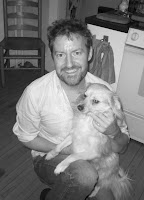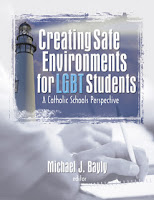From the very earliest days of this blog I've made no secret of my admiration and respect for Scottish actor Hans Matheson.
True, part of his appeal for me is definitely his physical appearance. There's just something about him that, well, does it for me. Maybe I was involved with someone physically very similar to him in a previous life! Who knows. Regardless, it's also true that the man is a very gifted actor, one who has shown himself more than capable of playing diverse roles – from historical figures such as Nero, Thomas Cranmer, and the Earl of Essex, to fictitious though nevertheless complex characters – including the conflicted idealist Doctor Zhivago, the twisted Alec D'Urberville, and the doubting Rev. David Richmond.
With all this in mind I have to say that Hans Matheson is an actor who should be getting much more serious and prominent roles than his latest one in Noam Murro's fantasy war film 300: Rise of an Empire, a follow-up to Zack Snyder's 2007 film 300.
Based on the as-yet-unreleased Frank Miller graphic novel Xerxes, the action of 300: Rise of an Empire takes place before, during, and after the events of 300 and is centered on a fictionalized retelling of the Battle of Salamis.
From what I can gather, I think it's fair to say that Hans has a supporting role in 300: Rise of an Empire. He plays Aesyklos, the "right hand-man" to the film's lead character, Themistocles (played by Australian actor Sullivan Stapleton). History buffs will recognize both Themistocles and Aesyklos (or Aeschylus) as historical figures, though as Stephen Whitty of the Newark Star-Ledger notes, the film is a "mauling of history," including, for instance, the "anachronistic use of gunpowder."
Writing in The Guardian, Mark Kermode declares 300: Rise of an Empire "a soul-draining gorefest," offering "nothing but lumpen CGI bloodletting and headbangingly boring quasi-historical exposition." In her Washington Post review, Ann Hornaday laments that "when the film isn’t sloppily directed, it’s a series of lazy filmmaking tics, including fetishistic slow-motion shots of blood, water and sweat, as well as sundry dismemberments, impalings and decapitations."
Despite such negative reviews the film took in $45 million on its opening weekend, enough for the top spot at the box office. Yet Steven Zeitchik of the Los Angeles Times suggests that the film may not be as great a success as it appears, and that it actually hints at an end of the era of sword-and-sandals, fight-to-the-death epics. For this particular genre, writes Zeitchik, "sequels, it's turning out, are a particularly shaky bet. . . . Since so many of these movies are drawing on the same tropes anyway, the usual name-recognition benefits of a familiar brand are limited or unnecessary. Better to try a new movie that channels some of the originality of 300 than trying to square a number that’s been around a while. . . . Or even better yet, to give it a rest entirely."
Well, I think I'll be given 300: Rise of an Empire a miss entirely! Yes, this despite Hans' presence, the film's campy parade of male eye-candy, and its not-so-subtle homoerotic subtext.
How campy and homoerotic? Well, notes Rich Juzwiak in his Gawker review of the film, entitled "300: Rise of an Empire is Predictably, Hilariously Gay":
In an era wherein it is (mostly) OK to say "gay," unspoken homoeroticism functions primarily as comedy, regardless of intention. Where 300 seemed mostly clueless about how gay it seemed, Rise of an Empire is a bit more aware. The screenplay has a bunch of disgruntled Athenians say things like, "Shut your cock hole!" and "Fuck those muscle-bound boy lovers!" in an early town square meeting. Themistocles takes a particular shine to a young, nubile member of his army, Calisto (Jack O'Connell), who tells his commander, "My blade will be sharp and ready by the morning." That is, after all, when they're sharpest. Themistocles' No. 1, though, his rock, is the long-haired and relentlessly faithful Aesyklos (Hans Matheson).
But no one man can satisfy Themistocles. "I have spent my life on my one true love: the Greek fleet," he proclaims. Sounds like an active life!
Because today's world offers plenty of places to see more male flesh even more openly eroticized than what 300: Rise of an Empire offers—porn, a circuit party, your local steam room—the movie's glistening coyness comes across as a reminder of yesteryear's cinematic gay coding, when you had to squint real hard at a movie to see what was going on. That's about the only useful history lesson this film provides. Taken as text, rather than subtext, 300 is to ancient Greek history what the Olive Garden is to Italian food.
Oh, well . . . I'll take Hans' role in the film as an opportunity to explore the significance of the real-life Aeschylus. And I'll do so by sharing a part of what Wikipedia says of this ancient writer, including his influence on Robert F. Kennedy.
Aeschylus (c. 525/524 BC – c. 456/455 BC) was the first of the three ancient Greek tragedians whose plays can still be read or performed, the others being Sophocles and Euripides.
Aeschylus is often described as the father of tragedy. Our knowledge of the genre begins with his work and our understanding of earlier tragedies is largely based on inferences from his surviving plays. According to Aristotle, he expanded the number of characters in plays to allow for conflict amongst them, whereas previously characters had interacted only with the chorus.
Only seven of his estimated seventy to ninety plays have survived into modern times, and there is a longstanding debate about his authorship of one of these plays, Prometheus Bound. Fragments of some other plays have survived in quotes and more continue to be discovered on Egyptian papyrus, often giving us surprising insights into his work. He was probably the first dramatist to present plays as a trilogy; his Oresteia is the only ancient example of the form to have survived.
At least one of his works was influenced by the Persian invasion of Greece, which took place during his lifetime. This play, The Persians, is the only extant classical Greek tragedy concerned with recent history (very few of that kind were ever written) and it is a useful source of information about that period. So important was the war to Aeschylus and the Greeks that, upon his death, around 456 BC, his epitaph commemorated his participation in the Greek victory at Marathon rather than his success as a playwright.
He was a deep, religious thinker. Few poets have ever presented evil in such stark and tragic terms, yet he had an exalted view of Zeus, whom he celebrated with a grand simplicity reminiscent of the Psalms, and a faith in progress or the healing power of time.
. . . Aeschylus's works were influential beyond his own time. . . . During his presidential campaign in 1968, Senator Robert F. Kennedy quoted the Edith Hamilton translation of Aeschylus on the night of the assassination of Martin Luther King, Jr. Kennedy was notified of King's murder before a campaign stop in Indianapolis, Indiana and was warned not to attend the event due to fears of rioting from the mostly African-American crowd. Kennedy insisted on attending and delivered an impromptu speech that delivered news of King's death to the crowd.
Acknowledging the audience's emotions, Kennedy referred to his own grief at the murder of his brother, President John F. Kennedy and, quoting a passage from the play Agamemnon, said: "My favorite poet was Aeschylus. And he once wrote: 'Even in our sleep, pain which cannot forget falls drop by drop upon the heart, until in our own despair, against our will, comes wisdom through the awful grace of God.' What we need in the United States is not division; what we need in the United States is not hatred; what we need in the United States is not violence and lawlessness; but is love and wisdom, and compassion toward one another, and a feeling of justice toward those who still suffer within our country, whether they be white or whether they be black... Let us dedicate ourselves to what the Greeks wrote so many years ago: to tame the savageness of man and make gentle the life of this world." The quotation from Aeschylus was later inscribed on a memorial at the gravesite of Robert Kennedy following his own assassination.
I conclude with a brief video of Hans Matheson talking about his role in 300: Rise of an Empire.
For more of Hans Matheson at The Wild Reed, see:
• To the Lighthouse!
• Hans Matheson in The Tudors
• A Devilish Turn
• Stealing Away
• Hans Matheson in The Christmas Candle
See also the previous Wild Reed post:
• Alexander's Great Love





























1 comment:
Good but didn’t quite have the same “charm” so to speak as the original.
Post a Comment